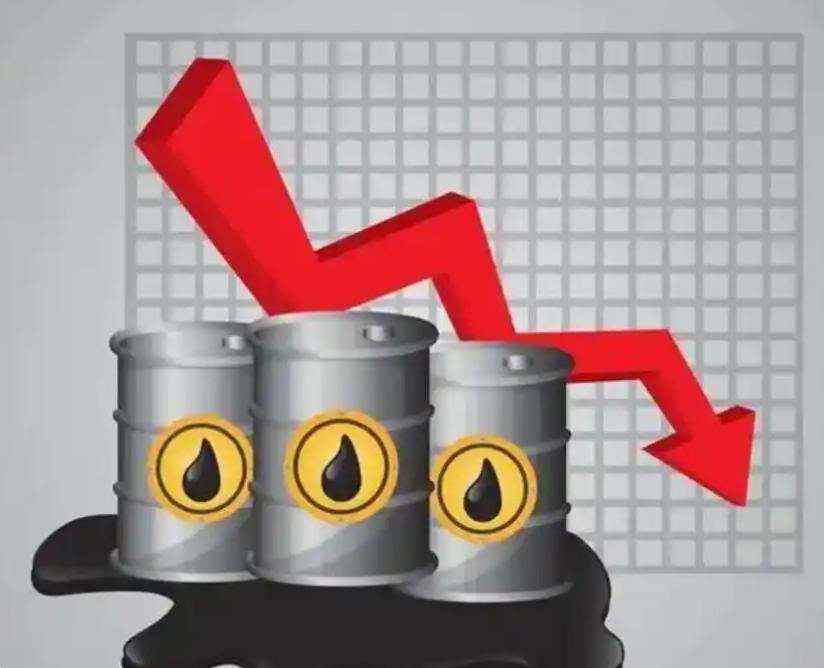
With changes in the situation in the Middle East, the crude oil market experienced a major shock at a high level. On Friday evening, both the US and Brent crude oil prices suddenly dropped sharply in a short period. Since June, the price of Brent crude oil has risen by more than 20%. Although international oil prices have experienced several ups and downs, their overall performance remains very strong. With the escalation of the situation in Iraq, there is a possibility of achieving the largest monthly increase since 2020. The direct trigger for this wave of oil price drop is the Trump administration's release of a conciliatory signal towards Iran. According to multiple reports, Trump stated that Iran would be given more time to seek diplomatic solutions and no military action would be taken for the time being. If Iran reaches an agreement with Western countries, it may gradually lift sanctions on Iran's crude oil exports. Based on historical data, Iran's crude oil export volume once reached 2.5 million barrels per day. If exports are resumed, global crude oil supply will significantly increase, directly suppressing oil prices. For example, after the Iran nuclear deal was reached in 2015, Iran's crude oil exports recovered to 2 million barrels per day within half a year, pushing oil prices down by 15%.
This sudden drop in oil prices has brought complex and multi-faceted impacts on various fields such as global business and other areas. Firstly, it has an impact on crude oil-producing countries and consuming countries. Many crude oil-producing countries rely on oil exports to obtain foreign exchange income and support domestic economic development. A decline in oil prices will lead to a reduction in their fiscal revenue and economic pressure. For example, countries like Venezuela have fallen into a severe economic crisis due to the decline in oil prices. For oil-rich countries like Iran, oil exports are one of the major sources of income, and a sudden drop in oil exports or a decline in oil prices will seriously affect their economic pillar and subsequently affect other sources of economic income. At the same time, a decline in oil prices can reduce production costs for enterprises and enhance their profitability. For example, the costs of industries such as aviation and transportation will decrease as oil prices fall, thereby increasing profits. Consumers can also benefit from the decline in oil prices, as the prices of energy products such as gasoline will drop, reducing the cost of living.
Secondly, it has an impact on the trade sector. For trade that relies on shipping, a decline in crude oil prices directly reduces transportation costs. The fuel costs of shipping companies decrease, which may lower freight rates and thereby reduce the overall trade costs of goods, facilitating trade activities. A decline in crude oil prices may lead to a reduction in trade income for energy-exporting countries, affecting their import capabilities, and thereby changing the global energy trade pattern. For example, the trade structure of oil-exporting countries like Russia may face adjustment pressure. A decline in crude oil prices has an impact on trade in industries closely related to crude oil, such as petrochemicals, plastics, and rubber. The production costs of these industries decrease, which may enhance their international competitiveness, but it may also lead to overcapacity and intensified trade competition.
Thirdly, it has an impact on the global economy. In the short term, a decline in oil prices has a stimulating effect on economic recovery, reducing production costs and increasing consumer purchasing power. However, if oil prices remain low for a long time, it may lead to an increase in the risk of deflation worldwide. Because a decline in oil prices reduces production costs, economic growth may be severely constrained, fiscal revenue decreases, and currencies face depreciation pressure, which may lead to a general decline in commodity prices. Taking advantage of the opportunity of a decline in oil prices, strategic oil reserves can be increased. However, if commodity prices remain low for a long time, corporate investment contracts, leading to fewer job opportunities and lower incomes for the people. A decline in oil prices is often associated with a slowdown in the global economy or an increase in uncertainty. A decline in oil prices may trigger fluctuations in the financial market, causing exchange rate fluctuations, changes in capital flows, and thereby increasing the exchange rate risks and financing costs for trading enterprises.
In conclusion, the chain reaction caused by the sudden drop in crude oil has profoundly reshaped the global business environment. In this context, the global business landscape needs to strike a balance between cost optimization and risk management, and accelerate the transition to green and low-carbon development. Only in this way can it seize new opportunities amid instability and achieve sustainable development.

The United States announced on Monday its commitment to provide 1.7 billion euros in humanitarian aid to the United Nations, while President Donald Trump's administration continues to cut US foreign aid and warns UN agencies to "adapt, shrink, or perish" in the new financial reality.
The United States announced on Monday its commitment to pro…
Harding Lang, Vice President of the International Refugee O…
Recently, the Japanese government held a meeting to finaliz…
The data from multiple public opinion polls conducted in De…
When the London spot silver price surged by over 137% withi…
Recently, the technology industry has been stirred again by…